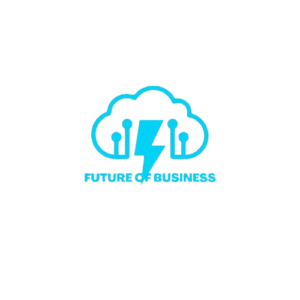Why Cold Callers Still Matter in Today’s Real Estate Market
Despite the rise of social media ads, automation tools, and digital marketing campaigns, cold callers for real estate continue to play a critical role in driving qualified leads. There’s something powerful about a direct human conversation that no email or chatbot can replicate. Cold calling cuts through the noise and reaches potential clients who may not even be actively searching but are open to the right offer. Real estate remains a relationship-driven industry, and the personal connection built through a phone call still carries weight. While some agents view cold calling as old-school, top-performing professionals know it’s a proven tactic for uncovering untapped opportunities. Cold callers provide the human touch that warms up leads, initiates dialogue, and creates a foundation of trust. In fast-paced markets where timing is everything, a cold call can be the catalyst that leads to a signed contract.
What Cold Callers for Real Estate Actually Do
Cold callers for real estate specialize in initiating first contact with potential buyers, sellers, or investors through outbound calls. Their primary job is to create interest, qualify leads, and either schedule appointments or pass the lead to an agent or closer. These professionals often follow a structured script that introduces the real estate service, asks probing questions, and uncovers pain points or goals. Unlike marketers who focus on email campaigns or ads, cold callers operate in real-time, responding to objections and engaging in authentic conversations. They can work from various lead sources such as expired listings, FSBOs, absentee owners, or purchased lead lists. Some cold callers are also trained to input data into CRMs and provide feedback on call performance. Their goal isn’t just to talk—it’s to listen, identify potential, and hand off leads that are worth pursuing.
How Hiring Cold Callers Can Transform a Real Estate Business
Bringing cold callers into your real estate team can dramatically enhance your lead generation efforts. Many agents spend countless hours chasing leads only to find that most aren’t qualified. Cold callers take on this front-end work, allowing agents to focus on high-value activities like showings, negotiations, and closing deals. By consistently reaching out to prospects, cold callers fill your pipeline with motivated leads. For investors, they are especially valuable for sourcing off-market properties or distressed owners willing to negotiate. Real estate teams that invest in cold calling often see faster growth due to the volume of touchpoints these callers create. Cold callers also bring structure and discipline to prospecting, ensuring no lead slips through the cracks. This consistent outreach strategy builds brand awareness, opens new conversations, and keeps your business top-of-mind in a crowded market.
What to Look for When Hiring Cold Callers for Real Estate
Choosing the right cold caller can make or break your lead generation strategy. Look for individuals with excellent verbal communication skills, a clear accent, and a confident phone presence. Real estate knowledge is a plus, but the ability to learn quickly and follow scripts is even more critical. Great cold callers are resilient—they can handle rejection without losing momentum. Familiarity with CRMs like Podio or Follow Up Boss adds efficiency to the workflow. Time zone alignment is crucial, especially for follow-ups and appointment setting. Some businesses prefer bilingual callers, especially in markets with diverse populations. Consider doing test calls or role-play exercises before hiring to gauge tone, professionalism, and objection-handling skills. The right caller becomes an extension of your brand, so ensure they represent your real estate business with professionalism and energy.
Cold Calling Strategies That Actually Work in Real Estate
Success with cold callers for real estate starts with having the right scripts, timing, and mindset. The opening line is critical—it should capture attention and offer value quickly. For example, “Hi, I’m calling because I noticed your property just came off the market. Would you still consider selling if the offer was right?” sets the tone for a real conversation. Cold callers should focus on asking open-ended questions that reveal motivation, timelines, and challenges. Calls made between 9–11 AM and 4–6 PM tend to yield higher response rates. Consistent follow-up is also essential; most conversions happen after multiple touches. Incorporating urgency, personalization, and empathy into scripts increases the chance of engagement. Callers should log every interaction and adjust based on real-time feedback. Continuous script refinement, tone calibration, and objection-handling practice turn an average cold caller into a high-converting lead generator.
Outsourcing vs. In-House Cold Callers: Pros and Cons for Real Estate Agents
Deciding between in-house and outsourced cold callers depends on your budget, business size, and lead volume. In-house callers allow more control over training, scripting, and performance. They become integrated into your team culture and understand your local market deeply. However, managing and paying full-time staff requires more overhead and HR commitment. Outsourced cold callers—especially from agencies or freelancers—offer flexibility and cost savings. They often come trained, experienced, and ready to start dialing. Outsourcing is ideal for scaling quickly without a long onboarding process. On the downside, you may face challenges in quality control or time zone mismatches. It’s essential to vet outsourced providers carefully, set clear expectations, and monitor KPIs. Whichever route you choose, the key is to prioritize consistency, lead quality, and alignment with your business goals.
Tools and Tech That Enhance Real Estate Cold Calling Efficiency
Technology can significantly boost the productivity and success rate of real estate cold callers. Auto-dialers like Mojo Dialer or CallTools help maximize call volume by eliminating manual dialing. CRM systems such as Podio, REsimpli, and HubSpot track lead interactions, schedule follow-ups, and centralize communication. Call recording software provides quality control and training insights. VoIP services like RingCentral or Aircall enable virtual teams to operate from anywhere with crystal-clear audio. Real-time analytics and dashboards allow managers to monitor performance metrics such as call duration, response rate, and conversion rate. Call scripts can be integrated directly into the dialing platform, reducing friction for the caller. By investing in the right tools, real estate professionals ensure that every call is logged, measured, and optimized for results. Tech-driven cold calling means fewer missed opportunities and a more scalable lead-gen engine.
Compliance and Ethics: What Every Real Estate Cold Caller Should Know
Cold callers must operate within strict legal and ethical boundaries to avoid penalties and protect your business reputation. In the U.S., the Telephone Consumer Protection Act (TCPA) and the National Do Not Call Registry regulate who can be called and when. Real estate cold callers must scrub lead lists against the DNC database regularly. Consent is key—callers should avoid robocalls and auto-dialed messages without prior permission. Transparency in call scripting is equally important; callers must clearly state who they are, who they represent, and the purpose of the call. Many successful cold calling operations also adhere to internal call-time policies and ethical standards of communication. Training your callers on legal guidelines protects you from liability and ensures your outreach is respectful and professional. Staying compliant builds long-term trust with both prospects and regulators.
Signs Your Real Estate Business Needs a Cold Caller Now
If you’re finding it harder to keep up with leads or your calendar has more blank space than showings, it’s time to consider hiring a cold caller. A slowdown in lead flow, inconsistent follow-ups, or stale pipelines are key indicators that outbound calling can help. Cold callers are especially valuable when you’re targeting FSBOs, expired listings, or absentee owners. If you’re investing in marketing but not seeing a proportional return, a cold caller can re-engage lost leads and warm up cold ones. Real estate businesses growing faster than their team’s capacity also benefit from having a dedicated caller to manage front-end conversations. Burnout among agents from too much prospecting is another sign it’s time to delegate that role. When you need a consistent and scalable way to reach new prospects, cold callers provide a solution that gets results.
FAQ: Cold Callers for Real Estate
Q1: How many calls per day should a real estate cold caller make?
A skilled cold caller should aim for 80 to 150 calls per day, depending on the list quality, call duration, and lead types. Consistency and call volume are both important.
Q2: Can cold callers legally call FSBOs and expired listings?
Yes, but only if the numbers are not on the National Do Not Call Registry. It’s essential to verify that leads are legally contactable and follow TCPA rules.
Q3: What is a fair hourly rate or commission structure for real estate cold callers?
Rates vary, but $5–$15 per hour is common for outsourced callers, with some receiving bonuses for booked appointments or closed deals.
Q4: How long does it take to see ROI from hiring a cold caller?
Results can be seen within a few weeks, but consistent ROI typically appears after 30–90 days of call campaigns and follow-up cycles.
Q5: Do cold callers need to be licensed to call leads for a real estate agent?
No license is typically required to make calls and qualify leads. However, they should avoid discussing contract terms or giving legal advice unless licensed.











